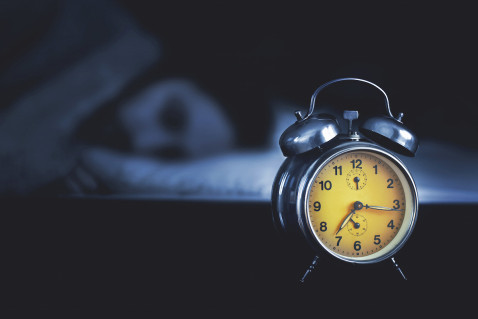
Cognitive Behavioral Therapy for Insomnia
Also known as CBT-I, cognitive behavioral therapy for insomnia is a well-known and respected therapeutic technique for treating insomnia. Most patients benefit from this therapy and are able to improve their sleep with just a few weeks’ worth of sessions. CBT by itself is a long-trusted method for treating a number of mental health conditions. It involves working with a trained therapist to become more aware of your negative thoughts and behaviors and to learn how to change them. For CBT-I, you can expect to start keeping a sleep diary. You will keep track of when you sleep, for how long, what you do before going to bed, what you eat and drink, how you use devices and other factors that can affect sleep. Your therapist will then teach you better habits, known as good sleep hygiene. This means doing things like limiting caffeine, going to bed and getting up at the same times every day, learning how to wind down before bed and getting exercise in the early part of the day.
Other Strategies
CBT-I is the best way to treat insomnia without using drugs. However, it does require that you work with a professional therapist. If you don’t have access to this kind of professional help, there are some strategies you can use that therapists recommend:
- Sleep restriction. This sounds counterintuitive, but the idea is that if you restrict your sleep one night, you’ll find it easier to sleep the next night. You gradually add more time to your night until you are able to sleep seven to eight hours every night.
- Relaxation strategies. Being anxious about being able to sleep is definitely going to keep you up at night. Use muscle relaxation, yoga, meditation and other relaxation techniques to wind down in the evening and to calm your mind.
- Limit stimuli. Being overly stimulated before bedtime is a major impediment to sleep. Avoid television and any electronic devices in the hour before bed. Instead, create a relaxing routine, such as an hour of reading before it’s time to sleep.
- Limit caffeine and exercise. Stop drinking anything caffeinated after noon. Caffeine stays in your body for hours. Exercise can help you sleep, but limit it to the morning or early afternoon. Evening exercise can be stimulating rather than relaxing.
Falling asleep and staying asleep are struggles that many Americans have every night. It’s tough to turn your brain off when it’s been going all day. The more you worry about not being able to sleep, the more you add to your insomnia. Sleep aids can be great for some people, but when you are prone to developing addictions, it’s best to avoid them. Work with a therapist on your insomnia if you can, or learn some good sleep practices that you can try on your own.
